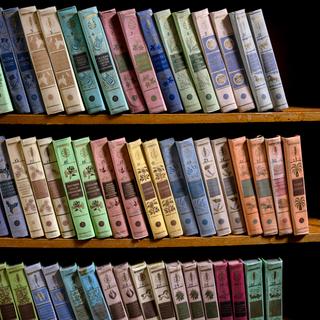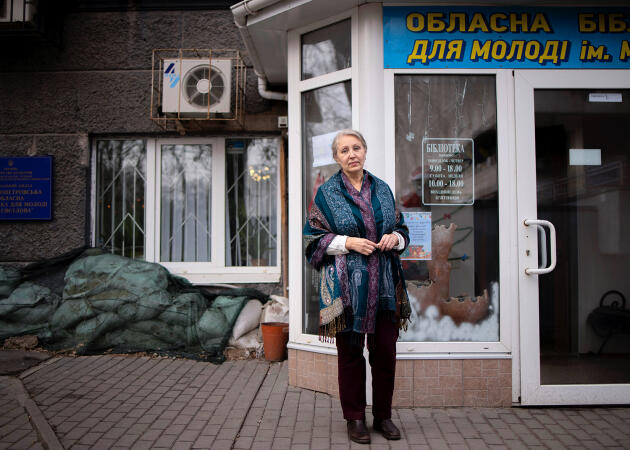


No more Pushkin, Dostoyevsky, or Tolstoy: Ukrainian libraries clean out shelves
FeatureRussian authors have disappeared from the shelves of most Ukrainian libraries since the 2022 invasion in a decision that the literary-minded staff of these libraries are not taking lightly, but rather out of a sense of patriotism. At the same time, these establishments are striving to meet a growing fever for Ukrainian books.
For several months now, Olga Matiukhina has been reliving the same scene as she wanders around the shelves of the municipal library where she is the director in Dnipro, a city of one million inhabitants in south-eastern Ukraine. She picks up a book, flips through it, and suddenly becomes overwhelmed by emotion. The headmistress remembers the first time she had read it: During the Soviet era, when young people's sentimental education came from devouring the ball scenes in Leo Tolstoy's War and Peace. Quickly, however, she feels beset by questions that brutally disperse her memories. Does this text glorify the Russian Empire? Or its army? She ponders.
Like all the country's libraries, hers received official recommendations to remove authors who support the invasion or Russian supremacy from its shelves in the name of martial law. "For any educated person, removing a book from a library is a difficult thing to do," argued the sexagenarian, whose commitment to her country is beyond doubt. Yet she feels like the entire world is watching her. No other war has ever turned literature and poetry into such a minefield.
The situation was made all the more sensitive by the fact that the authorities gave few precise instructions. In May 2022, a few months after the invasion had begun, Ukrainian Book Institute president Oleksandra Koval spoke of the need to remove "propaganda" and "anti-Ukrainian" works in an interview with the Interfax-Ukraine news agency.

Turning to the issue of classical Russian authors, Koval continued: "This literature is actually very harmful; it can really influence people's opinions. In my opinion, these books should also be removed from public and school libraries. They could probably remain in university and scientific libraries to enable specialists to study the roots of evil and totalitarianism (...), how they indirectly led to such an aggressive stance and attempts to dehumanize other peoples, especially Ukrainians."
'Our identity is at the heart of this war'
In cities and in the countryside, employees then set to work in 11,000 public libraries out of 15,000 – in other words, those not occupied or destroyed by Moscow. But how were they to proceed? "We suddenly found ourselves on the front line, caught between art, war and what each of us is currently experiencing in our private lives," explained a young librarian from Kyiv (like most interviewees, she wished to remain anonymous). She has lost sleep over it. Should books be removed? Which books? And what should be with them?
You have 86.82% of this article left to read. The rest is for subscribers only.
